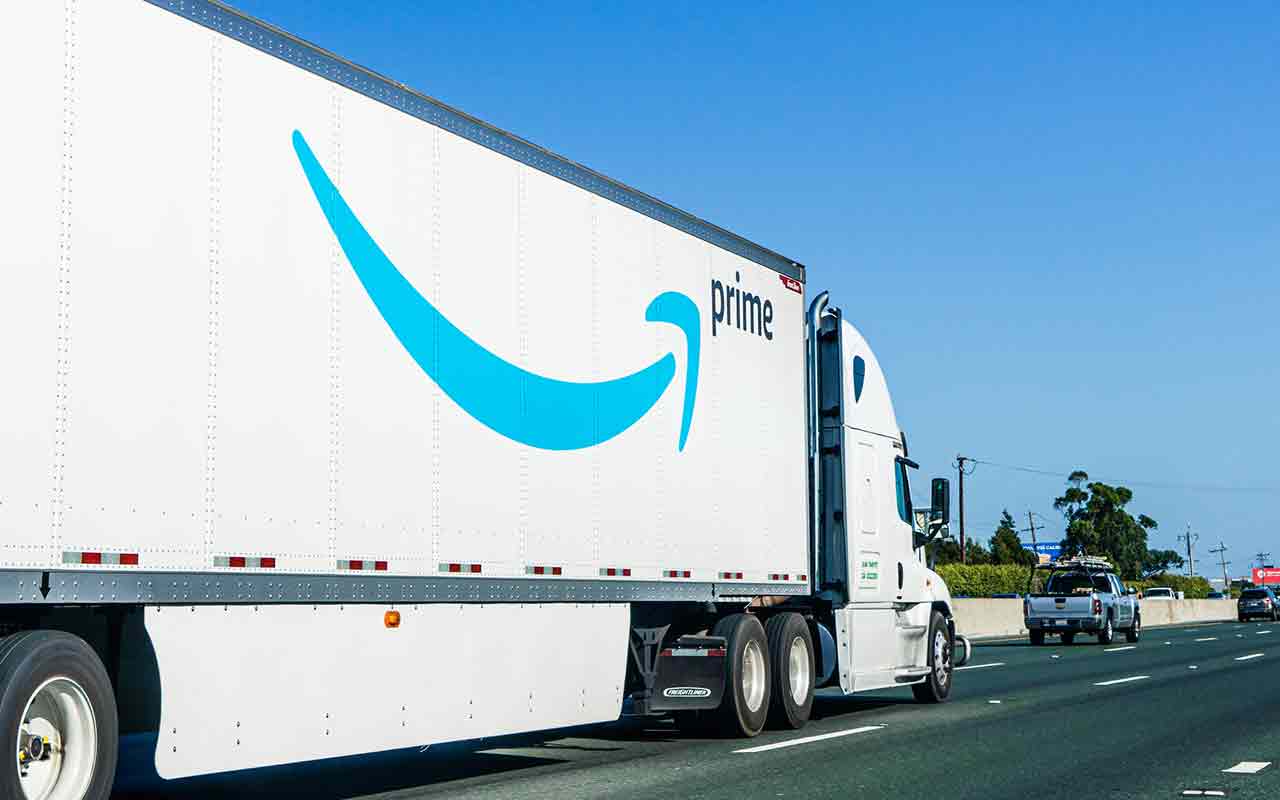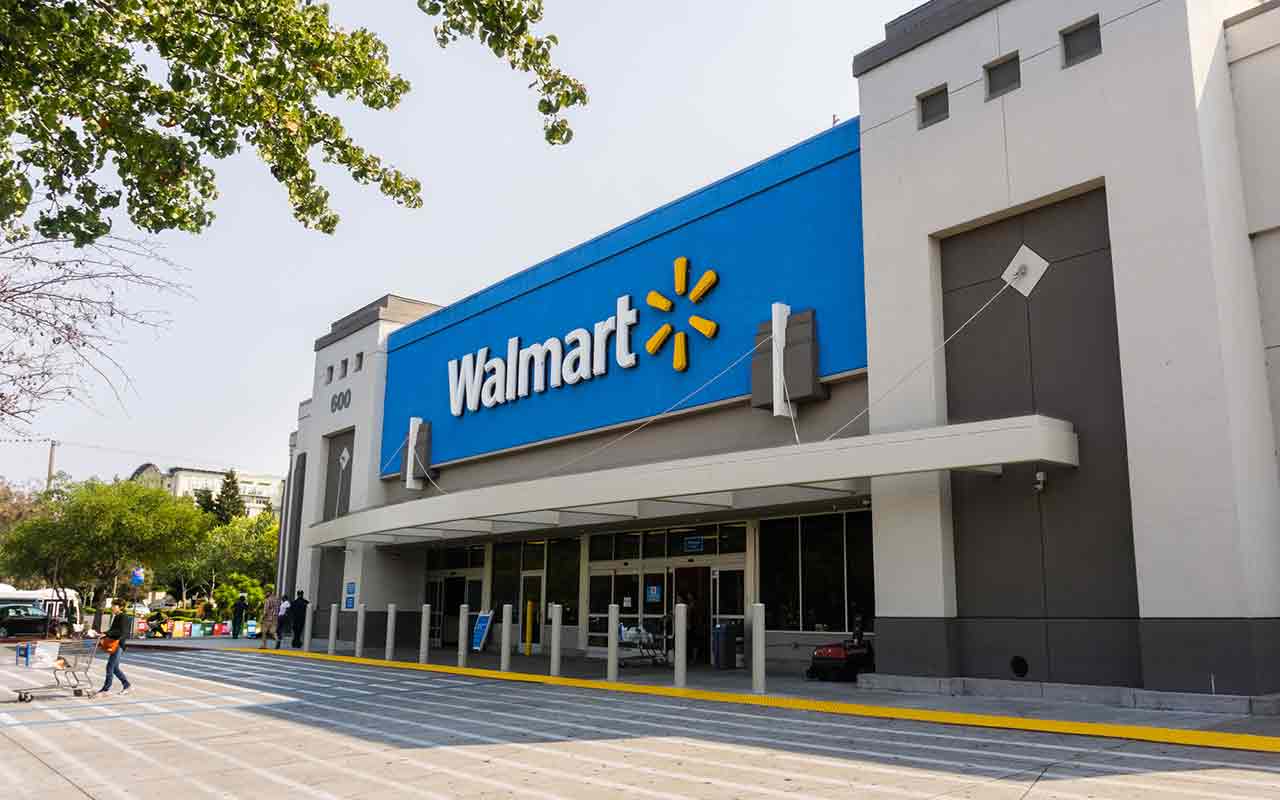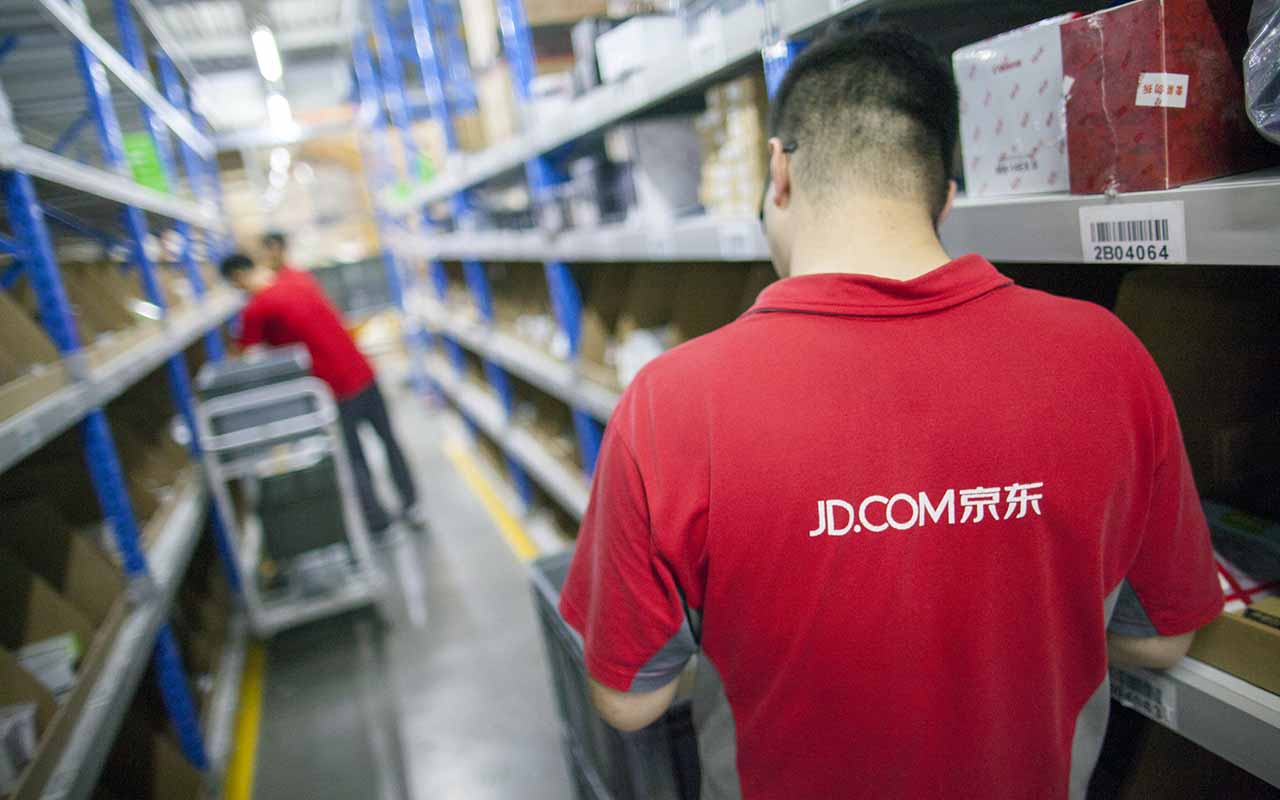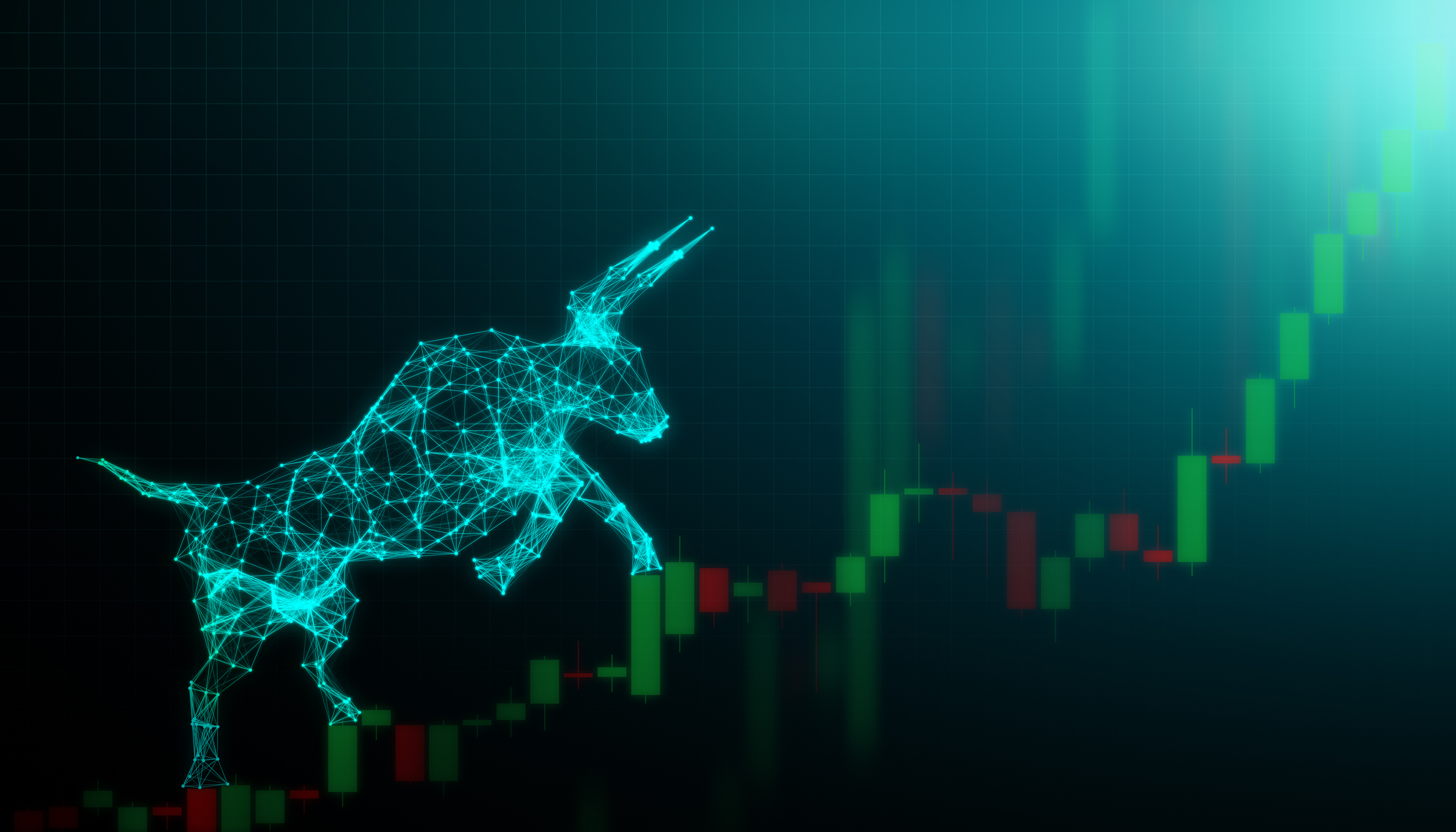11 Best E-Commerce Stocks for Electrifying Returns
Most of the world's best e-commerce stocks were already enjoying a tailwind from broader digital trends. The COVID-19 outbreak is simply speeding up adoption.

Profit and prosper with the best of Kiplinger's advice on investing, taxes, retirement, personal finance and much more. Delivered daily. Enter your email in the box and click Sign Me Up.
You are now subscribed
Your newsletter sign-up was successful
Want to add more newsletters?

Delivered daily
Kiplinger Today
Profit and prosper with the best of Kiplinger's advice on investing, taxes, retirement, personal finance and much more delivered daily. Smart money moves start here.

Sent five days a week
Kiplinger A Step Ahead
Get practical help to make better financial decisions in your everyday life, from spending to savings on top deals.

Delivered daily
Kiplinger Closing Bell
Get today's biggest financial and investing headlines delivered to your inbox every day the U.S. stock market is open.

Sent twice a week
Kiplinger Adviser Intel
Financial pros across the country share best practices and fresh tactics to preserve and grow your wealth.

Delivered weekly
Kiplinger Tax Tips
Trim your federal and state tax bills with practical tax-planning and tax-cutting strategies.

Sent twice a week
Kiplinger Retirement Tips
Your twice-a-week guide to planning and enjoying a financially secure and richly rewarding retirement

Sent bimonthly.
Kiplinger Adviser Angle
Insights for advisers, wealth managers and other financial professionals.

Sent twice a week
Kiplinger Investing Weekly
Your twice-a-week roundup of promising stocks, funds, companies and industries you should consider, ones you should avoid, and why.

Sent weekly for six weeks
Kiplinger Invest for Retirement
Your step-by-step six-part series on how to invest for retirement, from devising a successful strategy to exactly which investments to choose.
2020 is destined to be known as the year of the coronavirus, when "social distancing" and "WFH" became common parlance.
But for investors, we'll also look back at 2020 as a game-changing year for e-commerce stocks. For many of us, the COVID-19 pandemic quickly turned e-commerce from a convenience into a necessity, and changed how we do business, who we shop with and how companies operate.
"Whenever we have a recessionary period, disruption increases substantially. Individuals are losing their jobs and they have to make budget decisions," says David Yepez, lead equity analyst and portfolio manager at Exencial Wealth Advisors in Oklahoma. "What makes this unique is that we're in a recessionary period, but we can't leave the house, a lot of us. So it's even faster."
Online sales accounted for 16% of spending in the U.S. in 2019, with the total dollar number rising from $461 billion in 2017 to $602 billion last year. That upward trend should continue. While people won't always have to shop online out of sheer necessity, the longer people stay indoors for their safety, the greater the chance that new habits will form, bolstering the fortunes of rising e-commerce stocks.
"E-commerce giants have risen to the challenge and largely met consumer expectations," says Jeremie Capron, director of research at New York-based index, advisory, and research company Robo Global. "As a result, we expect an increase in adoption, not only during this crisis but also on the other side of it."
Here, then, are the 11 best e-commerce stocks to buy if you want to capitalize on this unprecedented disruption – not just in the U.S., but across the world.
Data is as of May 4.

Amazon.com
- Market value: $1.15 trillion
Let's start with the most obvious play.
If there was ever a stock tailor-made to profit from the coronavirus outbreak, it's Amazon.com (AMZN, $2,315.99). Just look at how it fits perfectly with today's pandemic-centric lifestyle.
Want to avoid the store? Amazon.com has you covered. That includes groceries, which you can get delivered through Amazon Fresh, Amazon Prime Now and Whole Foods, which the company bought in 2017. Amazon is so overwhelmed with grocery orders that it put new delivery customers on a wait list in April to make sure it could first service its existing customers.
Want to be entertained while you're stuck inside? Amazon Prime can help. Do you need to run your operations digitally while many of your workers are stuck at home? Just look to Amazon Web Services, its fast-growing tool that handles everything from analytics to business applications to machine learning. Facebook (FB), Netflix (NFLX) and ESPN are among the many giant companies that are already plugged into AWS, which generated $10.2 billion in revenues in just the first quarter of 2020.
Amazon's sales as a whole surged in Q1, by 26% to $75.5 billion. In fact, the company is doing so much business right now that it has created 175,000 jobs in response.
Profits came in below expectations, which is understandable given the chaos caused by the outbreak. And the biggest revelation – that Amazon would be plunking all of its second-quarter profits into coronavirus safety measures – temporarily dinged AMZN stock. But this shouldn't surprise long-term Amazon investors, who know that CEO Jeff Bezos often thinks with the very long term in mind, and that his big expenditures often pay off. That's what has made AMZN one of the best e-commerce stocks of all time.
Yepez says he's bullish on Amazon because it capitalizes on two key trends now: the growth of online shopping and increased internet traffic. "It's like a two-in-one play," he says.

Shopify
- Market value: $77.2 billion
- Shopify (SHOP, $658.89) has rocketed higher in 2020, with SHOP stock gaining 66% year-to-date as the Canada-based e-commerce solutions provider takes full advantage of how coronavirus is changing the playing field.
In short, Shopify works with small- and medium-sized businesses to sell physical and digital products. The company, which has been disrupting the brick-and-mortar space since its founding 16 years ago, says it currently supports more than 1 million businesses in 175 countries.
The e-commerce stock really picked up steam in mid-April, as Chief Technology Officer Jean-Michel Lemieux bragged on Twitter that SHOP was handling traffic comparable to Black Friday shopping on a daily basis.
"It won't be long before traffic has doubled or more," he tweeted on April 16. "Our merchants aren't stopping, neither are we. We need to scale our platform."
Shopify, which withdrew its 2020 guidance in early April, is scheduled to report Q1 earnings May 6. At the time, it said that its strong fourth quarter had continued into January and February.

Alibaba Group
- Market value: $512.8 billion
If you like Amazon, then you should absolutely love Alibaba Group (BABA, $191.15) stock. However, while it's often referred to as "the Amazon of China" because of its status as the country's biggest e-commerce company, that's not quite accurate. Much of what Amazon sells goes directly through its warehouse system, while Alibaba pairs buyers and sellers.
Nonetheless, there are clear similarities, and they don't stop at e-tailing. Alibaba also has a big cloud platform of its own (Alibaba Cloud) – one that saw revenues jump 62% year-over-year to $1.5 billion in Q4 2019. Better still: The cloud is also boosting the company's e-commerce business.
"We believe the migration of the core systems of Alibaba's e-commerce businesses onto the public cloud is a major milestone," Executive Chairman and CEO Daniel Zhang said in the company's quarterly earnings report. "(The migration) not only is generating greater operating efficiencies for Alibaba but also will encourage more customers to adopt our public cloud infrastructure."
BABA and other Chinese stocks have struggled through this year, as the coronavirus – which originated in Wuhan province – naturally hit its economy earliest. But reports that China has flattened its curve of new cases and is bringing parts of its economy online have given Alibaba and other China equities a lift.
And don't forget: While China's GDP fell by 6.8% during the first quarter, that economy was growing at a 6%-7% clip for years prior – a figure most developed economies would drool over. That presents a load of potential upside for China's best e-commerce stocks once the world returns to normalcy.
"Alibaba targets (10 trillion Chinese renminbi of gross merchandise volume) by FY24, despite current disruptions, and expects its monetisation rate to rise as new features (recommended fees, Weito, short videos and live streaming) lift its monetisation potential, which could be possibly as big as search," writes CLSA analyst Elinor Leung, who rates BABA stock at Buy.

Walmart
- Market value: $350.5 billion
If you're the largest retailer in the world, you can expect things to move fast in a global pandemic. That's where Walmart (WMT, $123.70) is these days, and it appears that founder Sam Walton's empire is going to come out of this mess stronger than ever.
Walmart was hardly immune to coronavirus-related downside. For instance, WMT has more than 400 retail locations in China, and sales there were impacted earlier this year.
Here in the U.S., however, Walmart reported a 20% jump in its store sales during March as shoppers sought out cleaning supplies, basic food staples and other necessities. Walmart can barely keep up with the traffic. It snapped up 150,00 new workers as part of an initial hiring spree, then announced April 17 that it is looking for another 50,000 temporary or part-time positions.
But Walmart is far more than its brick-and-mortar stores now. Savvy investments in e-commerce businesses have helped turn Walmart into the second biggest e-commerce company by share. And it's still growing at a rapid clip, boasting 37% online sales growth for the fiscal year ended Jan. 31.
WMT also is expanding its e-commerce reach across the globe. In 2019, it bought Indian e-commerce company Flipkart for $16 billion. While that should weigh on WMT's earnings during the current fiscal year, Jefferies analyst Christopher Mandeville believes the long-term payoff will be "significant."

JD.com
- Market value: $62.0 billion
Chinese online retailer JD.com (JD, $42.25), which operates much more closely to Amazon.com than Alibaba, has gained nearly 20% so far this year.
So why is JD.com, China's second-biggest retailer, thriving while Alibaba is sitting on losses?
Both e-commerce stocks are dealing with the same set of headwinds, though Alibaba is doing so with a massive 56% Chinese e-commerce market share (as of the last major reading in May 2019), while JD.com is a distant second with 16.7%.
For one, JD.com is already known for its rapid delivery in the country, which is helping its performance in the midst of the coronavirus. JD.com also has a robust presence in many "lower-tier" cities and even rural areas that still need these delivery services others can't provide.
JD is growing more briskly, too. In December, analysts were projecting JD to improve its profits by 40% year-over-year, while BABA's projected earnings growth was closer to 24%. Granted, you can throw away both those estimates now, but looking out five years, analysts still expect JD's average annual earnings growth to come in at more than double Alibaba's pace.
Another thing to like: JD recently announced a partnership with Arizona-based Blue Yonder, which will use its artificial intelligence and machine learning expertise to improve supply chains for JD's merchants.
Bernstein analyst David Dai recently upgraded JD.com from Market Perform (equivalent of Hold) to Outperform (equivalent of Buy), and raised his price target from $41 per share to $52. Dai believes China is past its near-term COVID-19 impact peak, and believes JD's investments in user experience are paying off.

eBay
- Market value: $31.7 billion
Ebay (EBAY, $39.83) is one of the first e-commerce companies, and one of the few internet firms that actually precede the dot-com bubble. The California-based company started out as an online auction house and managed to evolve into a global powerhouse.
Ebay now operates in 30 countries, offering not just online auctions, but shopping and classified advertising. It's also getting a fresh face; CEO Jamie Iannone started work on April 27. Iannone has a history at eBay, working in several roles from 2001 to 2009 before he became CEO of SamsClub.com and COO of Walmart eCommerce.
EBAY shares are up 10% year-to-date, versus a 12% decline for the S&P 500, as its primarily consumer-to-consumer format helped fill a gap in the coronavirus-impacted retail landscape. It also received a boost when it sold StubHub, the online marketplace for sporting and concert tickets, for more than $4 billion in February.
Ebay couldn't have timed the sale any better.
"At these levels, and in this environment, the risk/reward is favorable, and we see both defensive traits and positive catalysts over the next 12 months," write Guggenheim analysts, who upgraded EBAY stock from Neutral (equivalent of Hold) to Buy in April. "Defensive traits include a strong balance sheet, robust cash flow, and no inventory risk. Potential catalysts are small-business expansion, monetization of classifieds, a new CEO, and operational enhancements. We believe that it's time to 'buy it now.'"

PayPal
- Market value: $145.0 billion
PayPal (PYPL, $123.66), once a part of eBay, exploded in value after the 2015 spinoff, gaining more than 235% since becoming an independent company.
PayPal, of course, isn't an online retailer. It's an e-commerce payment processor whose services have become increasingly important as more consumers spend digitally. PayPal's primary service links its accounts to users' banks accounts, and provides an often seamless alternative to using a credit card for making purchases on dozens of online platforms.
Meanwhile, its Venmo app is continuing to grow in popularity as a peer-to-peer payment platform on mobile phones. Venmo processed $29 billion in transactions in the fourth quarter of 2019, representing 56% growth year-over-year.
PayPal says it has nearly doubled active accounts in the last five years, adding 143 million to finish 2019 with 305 million active accounts. "Our aspiration is to have a billion people on our platform," CEO Dan Schulman said at an investors' conference earlier this year.
The e-commerce stock also says it's working on technology to accept payments by scanning in QR codes.
"If you look inside your PayPal app or your Venmo app, you'll see prominently displayed a scan capability or the ability to show your own QR code to be scanned by a merchant," Schulman told analysts in January. "And we have the wherewithal in all Android phones, but not Apple phones yet, to be able to use the NFC chip to be able to do tap-to-pay capabilities. And so that will be another big thing that we'll be investing in this year, all around driving engagement.
"PayPal stands to benefit as the use of physical cash is likely to further shrink due to concerns about paper money being a coronavirus spreader," says Christian Magoon, CEO of Amplify ETFs and manager of the Amplify Online Retail ETF (IBUY). "PayPal has already seen traction before the coronavirus crisis due to the increase of online retail sales and mobile payment adoption."

Wayfair
- Market value: $12.7 billion
The push for Americans to stay in their homes has seemingly sparked a run of home improvement projects. And that's where online furniture portal Wayfair (W, $134.11) is making its bones right now.
Oh, sure, W shares fell with the rest of the market in the initial downturn, falling to below $24 per share in March. But now all systems are go, as the company announced in early April that business is booming, and shares are up 625% from their March lows.
"After entering the month of March with gross revenue growing at slightly below 20% year-over-year, consistent with January and February growth rates, Wayfair saw this rate of growth more than double towards the end of March," the company said in a statement. "This run-rate has continued into early April."
"We are encouraged by our increasing sales momentum, yet remain highly focused on our plan to rapidly reach profitability and positive free cash flow," CEO Niraj Shah said in the same statement. "The additional capital we are raising, though not strictly necessary, should only enhance our ability to successfully navigate through any market backdrop."
Wayfair is indeed growing quickly. It reported 20.3 million active users at the end of 2019 (+34% year-over-year) and $2.5 billion in revenues (+26%).
Wayfair also is getting a boost from private equity firm Great Hill Partners, which entered a 6% stake in W stock in mid-April.

Chewy
- Market value: $15.8 billion
If you're a pet owner, chances are you've been spending lots of quality time with your furry family member. You also might be spending plenty of money on Chewy (CHWY, $39.24) to keep it fed and entertained.
Chewy, a pet supply e-commerce site founded in 2011, emerged as a serious competitor to PetSmart, which bought the company in 2017. PetSmart has spun off chunks of ownership since then, including via a 2019 initial public offering – though PetSmart remains the majority owner.
You can understand the excitement over Chewy given some of the numbers in its fiscal fourth-quarter earnings report, which was released in April. Sales jumped 35% to $1.4 billion. Profit margins climbed from 20.9% to 24.1%. Its adjusted EBITDA (earnings before interest, taxes, depreciation and amortization) margin was -0.4%, and stark improvement from -5.1% in the year-ago quarter. Its 13.5 million active customers improved by 2.9 million from a year ago.
The company expects fiscal first-quarter sales to grow by 35% to 37%; however, Chewy isn't providing full-year guidance given uncertainty around the COVID-19 outbreak.
CHWY stock has run hot in 2020, up 35% year-to-date even after a recent pullback. UBS analyst Eric Sheridan downgraded Chewy's shares to Neutral on April 21, but the warning was primarily based on price. "Many of the long-term positive theses for Chewy are now reflected in the shares," Sheridan wrote, while nonetheless raising his price target from $40 per share to $45.
A double-digit pullback from peak prices, however, makes shares a little more attractive from a valuation basis.

XPO Logistics
- Market value: $5.8 billion
Someone has to be responsible for delivering this glut of new orders. FedEx (FDX) or United Parcel Service (UPS) are certainly safer, first-to-mind ways to play the trend, but smaller XPO Logistics (XPO, $63.79), while riskier, might have more upside.
This Connecticut-based transport company has been one of the jumpiest names on Wall Street for a while now. XPO shares zoomed ahead by nearly 1,400% as it engaged in a buying spree to expand. However, it gave back nearly half of those gains over the past two years after weak results, the loss of a major customer and a short-seller's loud criticism all conspired to weigh on shares.
Transportation companies are feeling the pinch of the outbreak – yes, e-commerce companies are using their services more, but business and personal shipments as a whole have been disrupted. The outbreak also scuttled XPO's plans to sell or spin off some of its business units. XPO also is heavily leveraged, carrying $5.8 billion in debt versus just $1.1 billion in cash.
However, while Chairman and CEO Bradley Jacobs calls himself a "pragmatic bear" because of the coronavirus, he urges shareholders to take a long-term view of the stock. "Things are difficult right now and they'll get worse in the short-term," he said in an April 16 letter to shareholders. "Then they'll get much, much better."
Analysts seem to agree. While the pros expect profits to decline by more than 11% this year, the expect a 30% rebound in 2021. Moreover, of the 14 analysts who have sounded off on the stock over the past quarter, 11 say Buy while three say Hold, and their collective price target of $80.77 represents 27% upside over the next 52 weeks.

MercadoLibre
- Market value: $30.2 billion
While many popular international e-commerce stocks tend to gravitate around China, MercadoLibre (MELI, $607.40) – which provides online retail and fintech solutions – is a way to play growth in Latin America. It currently boasts the largest e-commerce and payment platform in Latin America, operating across 18 countries.
The company started as an online marketplace that allows users to sell products to others, but recognized the need to expand into fintech, as many Latin Americans don't have a credit card or bank account. Today, the majority of MercadoLibre's revenues come from its marketplace operations, but another 30% come from its MercadoPago payments platform, and another 10% come from classified ads. The company also offers credit lines, and its MercadoShops tool allows small and midsize businesses to run stores on their own websites.
MELI currently boasts the largest e-commerce and payment platform in Latin America, working in 18 countries. The majority of its money comes from transaction fees on its online marketplaces, but 30% of its revenues comes from payments, and another 10% comes from classified ads.
MELI stock, which has roughly quadrupled over the past five years, has gained 9% year-to-date but in roller-coaster fashion. Analysts haven't been terribly active in the name of late, but it has garnered three Buys versus one Hold over the past month.
Profit and prosper with the best of Kiplinger's advice on investing, taxes, retirement, personal finance and much more. Delivered daily. Enter your email in the box and click Sign Me Up.
-
 Betting on Super Bowl 2026? New IRS Tax Changes Could Cost You
Betting on Super Bowl 2026? New IRS Tax Changes Could Cost YouTaxable Income When Super Bowl LX hype fades, some fans may be surprised to learn that sports betting tax rules have shifted.
-
 How Much It Costs to Host a Super Bowl Party in 2026
How Much It Costs to Host a Super Bowl Party in 2026Hosting a Super Bowl party in 2026 could cost you. Here's a breakdown of food, drink and entertainment costs — plus ways to save.
-
 3 Reasons to Use a 5-Year CD As You Approach Retirement
3 Reasons to Use a 5-Year CD As You Approach RetirementA five-year CD can help you reach other milestones as you approach retirement.
-
 Nasdaq Slides 1.4% on Big Tech Questions: Stock Market Today
Nasdaq Slides 1.4% on Big Tech Questions: Stock Market TodayPalantir Technologies proves at least one publicly traded company can spend a lot of money on AI and make a lot of money on AI.
-
 AI vs the Stock Market: How Did Value Stocks, Gold and PayPal Perform in April?
AI vs the Stock Market: How Did Value Stocks, Gold and PayPal Perform in April?AI is a new tool for investors to use for data analysis, but can it beat the stock market? Here's how a chatbot's stock picks fared in April.
-
 Stock Market Today: Stocks Extend a Quiet Winning Streak
Stock Market Today: Stocks Extend a Quiet Winning StreakThe S&P 500 Index could actually close April with a monthly gain, which would be an extraordinary sign of market resilience.
-
 40 Stocks That Could Rally 40% or More
40 Stocks That Could Rally 40% or MoreAnalysts say these S&P 500 stocks have at least 40% price upside over the next year or so.
-
 What to Do With Your Tax Refund: 6 Ways to Bring Growth
What to Do With Your Tax Refund: 6 Ways to Bring GrowthUse your 2024 tax refund to boost short-term or long-term financial goals by putting it in one of these six places.
-
 What Does Medicare Not Cover? Eight Things You Should Know
What Does Medicare Not Cover? Eight Things You Should KnowMedicare Part A and Part B leave gaps in your healthcare coverage. But Medicare Advantage has problems, too.
-
 PayPal Stock Falls Despite Earnings Beat, Strong Outlook
PayPal Stock Falls Despite Earnings Beat, Strong OutlookThe payments stock is suffering Tuesday under the weight of high expectations. Here's what you need to know.
-
 15 Reasons You'll Regret an RV in Retirement
15 Reasons You'll Regret an RV in RetirementMaking Your Money Last Here's why you might regret an RV in retirement. RV-savvy retirees talk about the downsides of spending retirement in a motorhome, travel trailer, fifth wheel, or other recreational vehicle.
